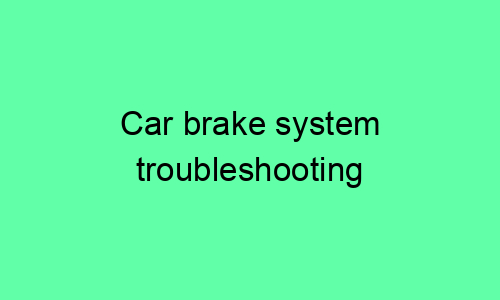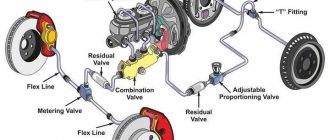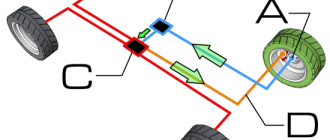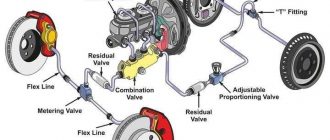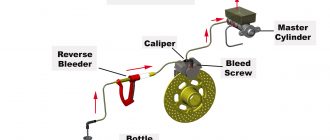Car Brake System Troubleshooting
Introduction
The brake system is one of the most important safety features on your car. It allows you to slow down and stop your vehicle in a controlled manner. When the brake system is not working properly, it can pose a serious safety hazard. That’s why it’s important to be able to troubleshoot brake problems and make repairs as needed.
How to Troubleshoot Brake Problems
There are a few common signs that indicate a problem with your brake system. These include:
- Spongy or soft brake pedal
- Brake pedal pulsation
- Squealing or grinding noises when braking
- Vehicle pulling to one side when braking
- Increased stopping distance
If you experience any of these symptoms, it’s important to have your brake system inspected by a qualified mechanic. They will be able to diagnose the problem and make the necessary repairs.
Common Brake Problems and Solutions
There are a number of common brake problems that can occur. These include:
- Worn brake pads: Brake pads are the friction material that comes into contact with the brake rotors to slow down the vehicle. Over time, brake pads will wear down and need to be replaced.
- Worn brake rotors: Brake rotors are the metal discs that the brake pads press against to create friction. Over time, brake rotors can become worn or warped and need to be replaced.
- Leaking brake fluid: Brake fluid is the hydraulic fluid that transmits the force from the brake pedal to the brake calipers. A leak in the brake fluid system can cause a loss of braking power.
- Faulty brake calipers: Brake calipers are the components that squeeze the brake pads against the brake rotors. Faulty brake calipers can cause uneven braking or a loss of braking power.
- Air in the brake lines: Air in the brake lines can cause a spongy or soft brake pedal.
These are just a few of the common brake problems that can occur. If you are experiencing any brake problems, it’s important to have your vehicle inspected by a qualified mechanic.
How to Prevent Brake Problems
There are a few things you can do to help prevent brake problems, such as:
- Have your brake system inspected regularly by a qualified mechanic.
- Replace worn brake pads and rotors as needed.
- Flush the brake fluid every few years.
- Avoid driving in heavy traffic or in stop-and-go conditions.
- If you experience any brake problems, have them repaired as soon as possible.
By following these tips, you can help keep your brake system in good working order and prevent costly repairs.
Conclusion
The brake system is an essential safety feature on your car. By understanding how the brake system works and how to troubleshoot brake problems, you can help keep your vehicle safe and reliable.
